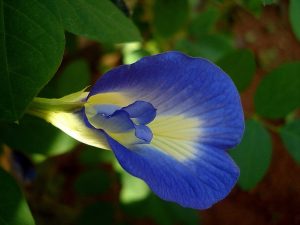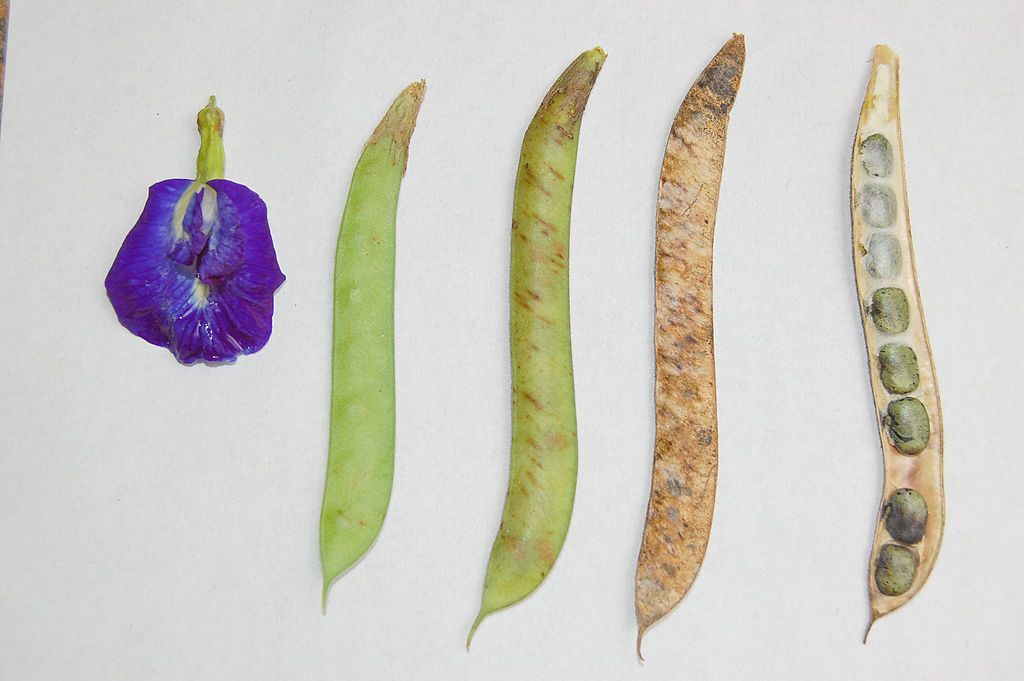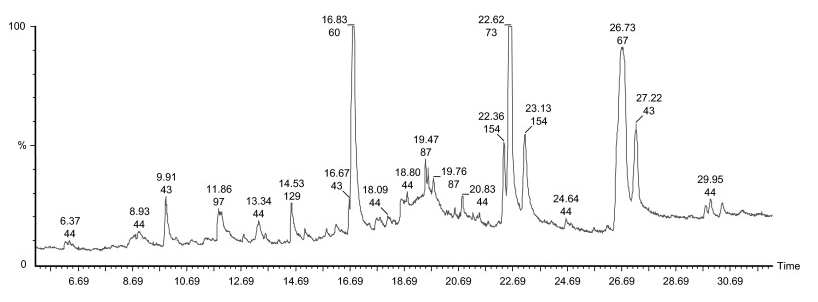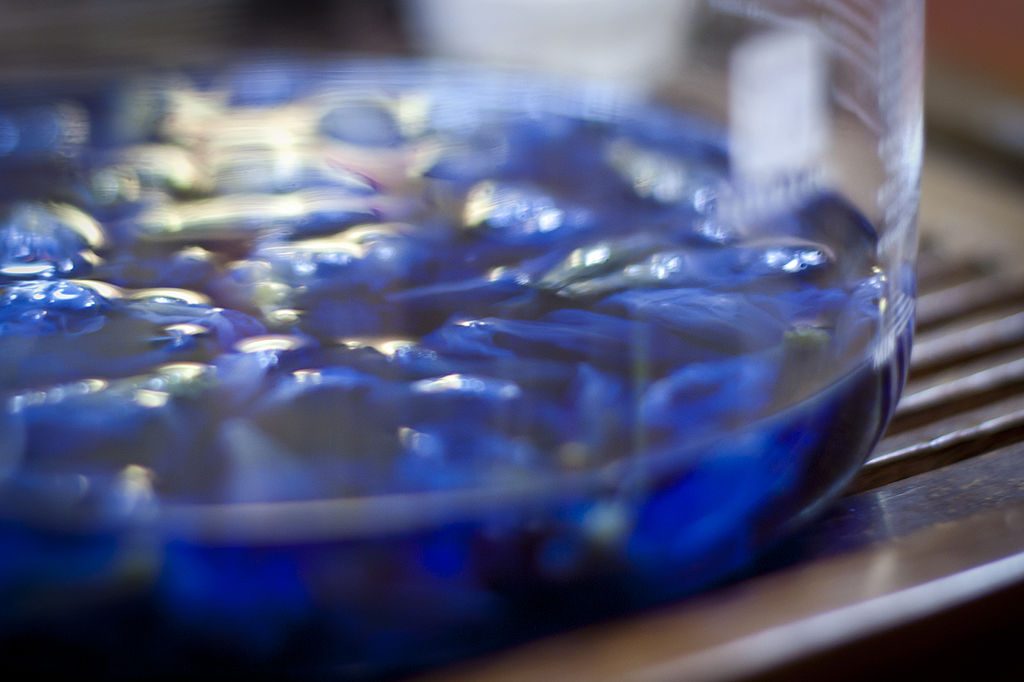Early animal research suggests that Indian herb Clitoria ternatea may protect memory and alleviate anxiety.

- Supporting memory. Early research has demonstrated Clitoria ternatea‘s ability to alleviate memory impairment and enhance memory function.
- Reducing anxiety. Clitoria teranatea was shown to diminish some of the effects of anxiety and stress in animals.
- Improving mood. The herb may have anti-depressive properties.
Overview
Native to the equatorial regions of Asia, Clitoria ternatea is a vine plant that grows in moist soil. Its most notable feature is the deep blue color of its flowers, which resemble the clitoris in shape, hence the name “Clitoria.”
The flowers and pods of Clitoria ternatea are popularly incorporated into Southeast Asian cuisine. It is also considered a brain-supportive substance in Ayurvedic medicine and is typically used to promote neurological health. It’s major nootropic uses include memory enhancement, antidepressant, and anxiolytic effects.

How Clitoria Ternatea Might Help the Brain
Although the exact mechanisms powering the nootropic effects of Clitoria ternatea are not yet clear, its broad collection of bioactive ingredients — anthocyanins, triterpenoids, flavonol glycosides, and steroids — are likely the compounds responsible.1 2 3 Several proposed mechanisms include:
Elevating acetylcholine levels
The neurotransmitter acetylcholine (ACh) has long been associated with optimizing brain health and cognitive function, especially learning and memory. Clitoria ternatea has recently been shown to significantly increase ACh content in the hippocampus.4
Increasing neuronal growth
Clitoria ternatea was also found to improve learning and memory by stimulating the dendritic arborization of amygdaloid neurons, which is a fancy way to say that the herb promotes growth of brain cells in the brain’s amygdala.5
Reducing monoamine oxidase activity
Multiple phytochemical constituents of Clitoria ternatea were found to block the protein monoamine oxidase (MAO), which is known to inactivate neurotransmitters.6 A common medical treatment for mood disorders, such as Alzheimer’s and depression is to block MAO via drugs called MAO inhibitors.7

Clitoria Ternatea Benefits & Uses for Brain Health
Clitoria ternatea is rarely sold by itself, but is more commonly combined with other herbs in nootropic products. Its purported benefits include enhanced memory, reduced anxiety, and improved mood. However, all current evidence is restricted to a handful of animal studies, making it difficult to support its effects in humans.8 The plant has additionally been utilized in Ayurvedic medical practices to combat convulsions and tranquilize or sedate the body.9

Research
Animal Research
Early animal research has demonstrated the potential for Clitoria ternatea to promote a broad range of nootropic effects, particularly enhancing memory and reducing anxiety.
In this investigation, rats were given Clitoria ternatea extract before undertaking various tests of cognitive capacity. The extract was found to decrease time to complete the elevated plus maze (EPM) and increased discrimination index in the object recognition test. It also increased time spent in lit box of the light/dark exploration test by 157%, decreased immobility in the tail suspension test, reduced stress-induced ulcers, and reduced convulsing activity.
- The researchers concluded that “the extract was found to possess nootropic, anxiolytic, antidepressant, anticonvulsant and antistress activity.”10
Clitoria ternatea extract (300, 500 mg/kg) may help preserve memory function in rats
In this investigation, rats with induced amnesia were orally administered either 300 or 500 mg of Clitoria ternatea aerial and root extracts per kg of body weight. The extracts, especially those drawn from the roots, resulted in significant memory retention at the 300 mg/kg dose. The improvement was linked to an increase in acetylcholine content and acetylcholinesterase activity in the brain.
- The researchers concluded that “C. ternatea extracts increase rat brain acetylcholine content and acetyl cholinesterase activity in a similar fashion to the standard cerebro protective drug Pyritinol.”11
Clitoria ternatea (50, 100 mg/kg) may enhance short and long-term memory in rats
In this controlled investigation, rat pups were given a control solution or either 50 or 100 mg/kg body weight of an aqueous root extract of Clitoria ternatea (CTR) every day for 30 days and then subjected to passive avoidance and spatial learning (T-Maze) tests either right away or 30 days after treatment. Compared to the control, the Clitoria ternatea group showed improved retention and spatial learning performance at both time points.
- The researchers concluded that Clitoria ternatea “improved retention and spatial learning performance at both time points of behavioural tests, indicating the memory enhancing property of CTR which implicates a permanent change in the brain of CTR treated rats.”12
Human Research
Successful clinical studies investigating the properties of Clitoria ternatea have yet to be conducted.
Nootropic Dosage
- No clinical research on Clitoria ternatea has been performed, which makes human dosage difficult to pinpoint.
- Typical Clitoria ternatea supplementation provides from 80 – 300 g or 5 – 10 flowers per daily serving.
Available Forms
- Aqueous extract of the flower, stem, seeds, or roots
- Flowers steeped in water and taken as a tea or cold drink
Supplements in Review Says
- Clitoria ternatea extract 100 g as a nootropic.
Clitoria ternatea may support memory and reduce anxiety. Early animal research suggests Clitoria ternatea may help protect or even enhance memory as well as reduce anxiety, although clinical research needs to be completed before it can be safely recommended as a nootropic.
Clitoria ternatea extracts seem to be the most effective. Extracts appear to be the most optimal form of Clitoria ternatea as a nootropic, although it is more commonly available as dried flowers.
Leave a Reply